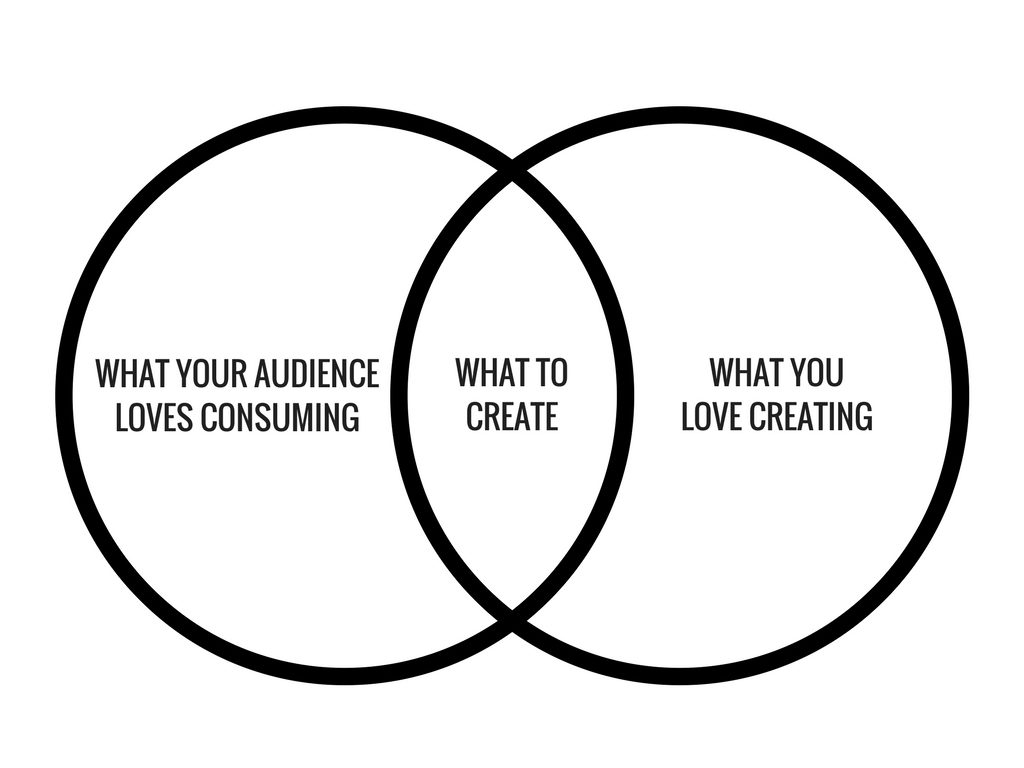How To Make Full-time Income Blogging
Do you want to write for a living? Do you want to own your own business? Do you want to make more money, working fewer hours, while never having to go to an office, ever again? Well, guess what… not only is it totally doable, it's never been more doable at any other point in the history of humanity.
The odds are stacked in your favour. Because (1) it's 2020, (2) you exist, and (3) you clearly have an internet connection and a computer and/or smart phone. So you already have everything you could possibly need.
In line with my recent commitment to write about things that aren't just sex and relationships focused, I've decided to write a comprehensive deep-dive article on exactly how to make a full time income from blogging, or otherwise doing some sort of content marketing/online business.
Over the past few years, while exclusively marketing myself as a sex and relationships coach, I've actually coached over thirty individuals and helped them create self-sustaining online businesses for themselves… but for some reason I never thought to write about online business on my website in a comprehensive way. Well, today, that changes.

Look at this doofus! If he can do it, so can you.
Because I may never write about this topic ever again (seriously), I'm just going to lay it all on the line. I won't be holding back. That way, if you like it, you can read this post, bookmark it, and keep coming back to it as a reference piece… and if you don't like this post and you'd prefer that I just stick to the sex and relationships stuff, then there's only one measly article for you to ignore among my 500+ other free articles! Everyone wins.
Enough pre-amble. Let's get into it.
The Exact 6-Step Process Of How To Make A Good Living Online
This is the bare bones structure of what you need to do in order to make a good living with an online business (website/blog, podcast, etc.).
1. Get a rough idea of what you want to do
2. Start
3. Put out content that genuinely helps people
4. Convert people into subscribers
5. Continue to help people with their biggest problems
6. Offer them products or services that help them even more than your content already does
Easier said than done? Of course. The above will take real, honest work. But it's still doable.
Since I started my business four years ago, the majority of my closest friends are self-employed with online businesses. Some of them make $120,000 a year… some of them make $200 million a year. Ultimately, the money doesn't matter that much. What matters is that they feel fulfilled on a daily basis. But I'll get back to that shortly.
To briefly break down these six points for some context…
1. Get a rough idea of what you want to do
You don't have to know exactly what it is that you're going to be focusing on, but you should have a general idea.
You'll have an easier time starting a profitable business if you can succinctly answer 'What is your thing about?'
The more specific, the better. I.e. it's better to start a blog/podcast/online business about 'how to overcome Lyme's disease' than it is to start a business on 'how to be a little bit healthier.' As a rule of thumb, the more niched your thing is, the better it will do. These are also guidelines. Go ahead, prove me wrong. I dare you.
(Not sure what you want your thing to be about? Don't worry, I'll address that in an upcoming section of this article (soon!))
2. Start
Have a general idea? Then start.
Just take action. Don't hide behind logo design modifications and market research and blah blah blah blah. Just start. Sooner than later. Like, today. You'll be glad you did.
"The best time to plant a tree was 20 years ago. The second best time is now." – Chinese proverb
3. Put out content that genuinely helps people
Regardless of what format you choose to publish (blog posts, audio, video, ebooks, etc.), one of your first steps in launching your online business will be to provide content that genuinely helps people solve their life's biggest problems.
Whatever those problems are will be unique to the market that you are choosing to serve.
4. Convert some of those people into subscribers
When people find (and love) your content, it's then imperative to convert a certain percentage of those people into subscribers so that they can hear from you again.
5. Continue to help people with their biggest problems
When those people have gifted you with their time and attention, it's then on you to solve even more of their problems. More on this soon.
6. Offer them products or services that help them even more than your content already does
After you have built trust with your potential customer by solving a ton of their life's biggest issues, it's time to offer them a product or service that will help them even more. At this stage, a certain percentage of your followers will say 'Yes!' to paying you, and them BOOM… you have a business.
Three Necessary Mindsets You Need To Have To Run A Successful Business

Between all of the people that I have coached on developing their businesses, the people that did the best were the ones who had the following three mindsets in common. The one's that faltered on these three things either gave up after enough setbacks, or they had inconsistent success.
Here they are, in no particular order. Abide by these three rules and thrive… or ignore them at your own peril.
1. You have to make it more about others than you do about yourself
If you get into business exclusively because of your goals (money, freedom, etc.) then you run the risk of having that mindset bleed into the quality of your work, and people will feel your selfishness reverberating through the content or services that you provide.
While a relatively more selfish focus might get your business off the ground to begin with, sooner than later you'll need to make your business about the service to others more than the service of your own needs.
This mirrors the spiritual path, or the path of codependent relationships versus healthy intimate relationships.
At a certain point in our lives we must let go of living in the egocentric world of getting our needs met (more money, more status, more fame, more love, etc.) and live in the more enlightened state of seeing ourselves as one with everyone around us. There is nothing to prove, no love that we need to obtain, when we are already whole and complete as we are. Holy tangent Batman! On to the second agreement.
2. Prioritize building long term trust over grasping for short term gains
There will be thousands of micro-decisions that you will make in the first year of your business that will come down to you either prioritizing long term trust or short term wins.
Let's use this article as an example. This article is a 5,000+ word beast of a resource that took me about fifteen hours to create. You could arguably take everything you need to know about starting an online business from this single page and go on to create a business that generates you a six figure annual income. I could easily take all of this information and turn it into a $1,000 weekend retreat seminar… or a $300 video course… or, at the very least, a $10 e-book and toss it up on Amazon. I could go for the short term gain of turning it into a revenue producing asset… but I'd rather not. I'd prefer to leave it up as a free resource, because I know that if I had had this resource available to me when I was first starting out it would have saved me at least two years of banging my head against a wall in frustration. And so, if I can save even five people from the time that I wasted, then I'm happy to do so.
Put out content that is overly generous, and you will build trust with your readers/viewers/consumers/customers long-term that will pay off in a bigger way down the road (plus it just feels good).
3. Play to your strengths, and outsource the rest as soon as possible
You have innate strengths. You have things that you're so good at that you don't even think of them as strengths… they're just parts of yourself that you take for granted, that most other people can't do.
In business, you win by doubling down on your strengths and hiring other people to do the things that you suck at (as soon as you are able to).
Conversely, in intimate relationships, you double down on chipping away at the things that are NOT your strengths (your blind spots, your 'weaknesses', etc.) and you grow and heal with your partner. This is why so many entrepreneurs have a challenging time with intimacy. In business you thrive when you are in control… but you destroy relationships when you can't let go of being in control. Go figure.
So yes. Back to the topic at hand. To thrive in business, double down on your strengths, and outsource the rest.
Quick example, from day one of me running my business, I knew that I was a gifted coach, and a decent writer. So I did everything I could to optimize my schedule for those two things… writing and coaching.

Here I am, writing an article, while living in Bali seven years ago.
I was not gifted at web design, coding, branding, strategy, or marketing, and so I hired out all of those things. I didn't have a ton of money to throw around at that time, but I was resourceful enough to make it work. And the more that I had other people doing the things I didn't enjoy, the more time I could be generating revenue for my business doing the things that I did like (like coaching). You get the idea.
Know what you're good at, and then aim to do only those things, as often as possible (this also makes the whole process that much more fun).
The Best Way To Create A Sustainable Online Business
In my opinion, a business that relies on content marketing is one of the most durable, fulfilling, and exciting business models to engage in. Here's why.
(If you haven't heard the term content marketing before, it's a fancy way of saying 'putting out things – blog posts, podcast episodes, etc. – to the world that help people.')
Content marketing is awesome for a few key reasons:
(a) You create your thing once
I like to think of pieces of content as being little soldiers (helpers, missionaries, volunteers… pick your poison) that march off into the world and continue to spread the goodness that I've created, long after I've last touched the message.
In essence, you get to…
(b) Set it and forget it
Once your content is out there in the world, it continues to help the people that you want to serve. This is where the whole 'make money while you sleep' conversation comes in. If your soldiers are still helping people with their life's biggest problems, then it would naturally follow that they will also be finding their way to paying you for your products and services whether or not you are actively working/at your computer.
(c) Inspire trust and help people
Your content inspires trust in your potential customer's mind, because it helps them in their life.
As a related side note… the most exciting metric that I track in my business is my monthly number of readers. While this number has a loose correlation with how well my business is doing financially, I am truly overjoyed by the fact that my work (as of January 2020) reaches over a million people per month.
If you have aspirations of helping millions of people across the world, starting and growing an online business is one of the best ways to do exactly that.
…
So you know how much of a fan of content marketing I am… but how do you figure out what kind of content to create?
What Kind Of Content Should You Create For Your Audience?
Put simply, you have to find the overlap between these two things:

If your ideal demographic is 90+ year olds, and you want to create a form of content that 90+ year olds don't know how to readily consume, then you'll be fighting an uphill battle from day one.
Conversely, if you know that your audience already loves consuming a particular type of content but you can't stand creating content in that format, then you're going to hate your life as you force yourself to sit down and make something that feels incongruent with your natural skills and abilities.
Find the overlap between what your audience wants and what you enjoy making, and you'll know what format is best for your business.
How To Know Exactly What To Create
Now that you have your primary content medium decided upon, how do you figure out exactly what to create?
Here are a handful of the most potent prompts that I use on a weekly basis to get the creative juices flowing.
1. What are the biggest things that I have overcome / learned / grown through?
You have life experience right? Are some of those experiences aligned with the thing that you're creating content around? Tell those stories. Share your experiences with the world.
2. What do people consistently come to me for help with?
Look over the past few years of your life. What do people always ask for your advice around? These conversational trends will leave cues. Seek them out.
3. What keeps my audience up at night?
Get out of your head and into the hearts of your ideal readers/listeners/consumers. What is keeping them up at night? How are they hurting? Create little miracles that you are confident will alleviate their unique suffering.
4. What pisses me off right now?
This is one of my favourite prompts (borrowed from a concept by Tim Ferriss).
Think about all of the things in the world that make you the most angry, in relation to the topic of your business.

In case you've forgotten, this is what anger looks like.
You're angry because you have a true, heated opinion about those things. Share those opinions with the world, and you will attract the types of followers that you're meant to attract.
5. What could I easily talk about for hours at a dinner party?
What are things that you could nerd out about for hours? When do you get rolling on a certain topic, and inevitably stop yourself and say something along the lines of, "Sorry, I could talk about this for days. I get so fired up about it!"
Take note. And take notes.
6. What am I afraid to say/write about?
Content creation can be therapeutic. At its essence, it's like a form of cognitive and emotional processing.
Whatever you're afraid to create content about, that's probably a good place to start.
In my personal experience, every single article that I've ever put out where I most thought to myself "Oh man, this is going to ruin me. This is too much vulnerability… no one is going to like this…", have been the pieces of content that have converted the most people into readers for life. Because, as Dr. Robert Glover states in his book No More Mr. Nice Guy, "Humans are attracted to each other's rough edges."
7. What can I give that would feel generous?
Content creation is, first and foremost, about being generous with the world. The more you give, the better.
So, similar to question #5, but from a different angle… what could you create that would feel generous? Something that you know that you could really go into a generous deep-dive that would help a handful of people in the world.
This post is an example of this idea in action. It doesn't make sense for me to write about how to build an online business on a primarily sex & relationships focused website… but I've had enough people ask me these exact questions, over and over, to know that creating this resource will help a handful of people immensely… so here I am, practicing what I preach.
8. Who can I connect with, and then provide value to?
It is my firm belief that the concept of "writer's block" is total bullshit.
What writer's block always points to is, simply, the fact that you feel disconnected from your audience.
So, if you're feeling creatively blocked, the solution is to hop on a phone call with one of the people you are serving (or would like to be serving) and pick their brain for a few minutes. Really listen to what their world sounds like. Ask them about their biggest pains and frustrations. Once you know how they need help, you will then feel inspired to create things that help them with those problems.
In essence, go connect with your tribe. They'll tell you exactly what gifts they want to receive from you.
Final note on this section. If you really feel stuck for producing your own, original ideas, check out what your competitors (aka industry colleagues) are creating, and create your version of it – especially if what you think about a certain topic is strongly different than what they have created (i.e. their response pisses you off).
How To Structure Your Content
Alright… so now you know what kind of content you're looking to create, you know exactly what you're going to be making, but you can't seem to make the content flow as well as you'd like to? Have no fear.
I have found a highly effective content structure, that has helped me literally hundreds of times in my creation process. You don't need to always play by these guidelines, but it can be helpful to have a backbone structure to fall back on when you're not sure where to go next. And this applies in the same way for articles, podcast episodes, videos… all of the formats.
Here it is:
Problem
Proposition
Tips
Wrap up / Call to action
That's it.

So easy a child could do it.
Problem. Here's a problem that you may have.
Proposition. What if things were different? What if you felt this way instead?
Tips. Here's how to change. Here's what to do about it. Here's your new way of life.
Wrap up / Call to action. Here's what I've just told you. Start today by doing this.
Et voila! Enjoy.
How To Market Your Content
As a general rule, and a necessary preface to this section in particular, above everything that I say in this section… TEST IT FOR YOURSELF.
Every niche/vertical/industry is different. And best practices are constantly evolving as technology shifts and markets evolve and mature.
These are the things that I have found to work best for me over the past four years.

I mean… sure, that's one way to market your content…
Ultimately, everything to do with online business comes down to traffic and conversion. Traffic meaning the number of people consuming your content, and conversion meaning the number of people who decide to dive deeper into your work (by signing up for your email list, buying a product or service from you, etc.). This section is about how to increase the total volume of people (the traffic component) who consume your content on a regular basis, by making your content spread further.
There are three primary ways that you get your content consumed by millions of people.
– Create phenomenal content that people will find valuable for years.
– Make sure that your content is optimized for SEO/Google search traffic.
– Make your posts go viral on social media.
If your content isn't very good, it won't go very far. Plain and simple.
If you write longer, deep-dive posts that have a lot of value in them, then your content is more likely to be ranked highly in Google and get consumed by people for years to come.
In this article, I'm going to be focusing primarily on how to get the most traction out of social media posts… since the way to get huge spikes of traffic is by having things go viral on social media platforms like Facebook, Instagram, Pinterest, Twitter, etc.
How To Make Your Content Go Viral On Facebook
Here are a handful of best practices that will help your content spread far and wide.
1. Post your content between 8-9:30am and 4-5:30pm in the time zone that most matters to you. These times, also known as the beginning and near-end of the normal workday, are when people tend to consume the most social media content.
2. Early week/week days tend to work best too (Monday, Tuesday, Wednesday) since social media posts tend to go viral throughout the course of the five week days, and they die off through the weekend when people are at their computers less.
3. Don't do the following tips with every piece of content you release because you don't want to be spammy, but when you've put an EXTRA amount of work into something, you are allowed to lean on your social capital to make it spread far and wide. Again, use these following tips sparingly.
– To really give your content some extra juice, ask a few of your close friends to 'like' or comment on your posts within the first few minutes of you posting it. The more your post is engaged with within the first minutes of being posted, the more likely it is to reach more people within the first few hours of being posted.
– cc:/Tag people in the post or the first comment – ONLY IF you legitimately know that they'll love it. Again, don't be a spammy jerk or you'll get unfollowed/blocked/etc. and lose credibility in people's eyes
– Explicitly ask people to share the piece or tag their friends in the comments
Also (not a social media tip), make sure you build an email list. Do it earlier than you think you need to. Use services like Aweber and Mailchimp that let you use it and not pay for it until you're at 500 leads. So it's basically free until you're making money from what you're doing. Email your list often enough that you stay on their mind… but always provide genuine value.
How To Monetize Your Online Business
Again, similar to the preamble in the section on how to make your content go viral, online monetization is always evolving. Make sure you're constantly keeping your finger on the pulse of what the newest trends are, so that you can adapt your business to what's working today.
To start, there's an infinite number of ways to make money doing what you love… it is literally only limited by your imagination.
In this article, I'm going to go from the easiest to implement to the most challenging (in terms of number of hours it generally takes to make the revenue stream happen). Here we go.
1. Online or offline services
One of the fastest ways to monetize your online following is to offer people coaching or consulting in whatever your unique zone of genius is.
If they like your content, then you most likely resonate with how their mind works, and they'll be happy to pay you for your expertise and personally calibrated advice.

Doing a coaching call with a client.
2. Affiliate sales
The next fastest way to monetize your online following is to do some form of affiliate marketing.
As an affiliate, you get to refer people to existing products or services (that someone else has made/provides) and you take a small percentage of the sale as a commission (generally anywhere from 5-50%, depending on what it is).
This is a faster revenue stream to set up since you don't have to spend any time on creating the products yourself. They already exist, you just refer your followers to them. Obviously, or hopefully obviously, you want to make sure that you're only referring people to products or services that you have actually used and benefited from. Don't just do it to make a sale. Do it because you believe deeply in the products that you recommend.
I can do this with ease with certain products that I'm a raving fan of, because I know how those products have positively impacted my life.
For example, I frequently recommend Vitamix blenders, liposomal vitamin C and liposomal curcumin, and the book No More Mr. Nice Guy, because these are things that I either use daily or have benefitted from tremendously. And when you click on any one of those three links and you purchase one of those products, I make a couple of dollars. It's that simple (what's less simple is the number of years it took me to earn the fact that you're even reading this article and would trust a product that I'm recommending, but I'm touching on that throughout this article and you already understand that by this point).
The easiest places to get started with affiliate sales (in order of ease) are Amazon Associates, Clickbank, and ShareASale.
3. E-books
Regardless of whether or not you currently consider yourself a writer, you can write e-books (or have them written for you) and either sell them on your website, on Amazon, or both.
Depending on the topic and industry you're writing for, e-books tend to be somewhere between the length of a blog post and a regular tree book (anywhere from 10-200 pages).
This is how I first monetized my website, back in 2013. I wrote three books within a two month period (and continued to add a few more since then) and that was the first passive revenue that I made from my website. There's nothing like the feeling of waking up to several emails telling you that people paid you while you were literally unconscious.
Write your books (or dictate your ideas and have a ghostwriter write them for you), have them professionally formatted and edited, and then host them on your website or on Amazon, and boom, you'll be the proud owner of instant and ongoing passive revenue.
4. Audio or video courses

Similar to e-books (in that they are also information products), but in a different format, are audio and/or video courses.
Package your best-of-the-best information into ready-to-consume courses on your ideal customers biggest pain points and offer them at a discount. Generally, you want to offer your content at a no-brainer price. I.e. if you offer $1,000 worth of value for $100, or $100 worth of value for $10, then people are going to be more likely to buy it and see you as a generous and awesome human being.
5. Membership model
Having your website be a membership model takes quite a bit more work to create and maintain for two reasons: (1) you have to create so much brand trust in the eyes of your followers that you likely won't be able to turn your website into a membership model until the 3-5 year mark, and (2) once you have people in your membership area, you will constantly be on the 'content treadmill' of having to pump out new and unique content regularly.
It's a lot of work, but if you have the ample following to justify it, membership sites can be very lucrative. Again, it's very rare that you can make this work right out of the gate for most businesses/verticals (unless you're running a software-as-a-service business or running an online dating website).
6. Donate buttons
Similar to membership sites, donate buttons can be a great way to monetize, but not in an entirely significant way unless you have a massive following with pre-established brand trust.
Slapping a donate button on your website won't be much of a needle mover unless you already have millions of people consuming your content on a regular basis.
Personally, I think that donate buttons are lazy (in the way that most business owners use them). My vote would be to have conversations with your followers and ask them what products or services they would be willing to pay for, and then provide them with those products or services.
For example, instead of having a donate button on my website (that, as of today, has well over 500 free articles available publicly), I simply have low-cost products (like books and courses) that my readers can buy if they so choose.
7. Physical products
You can also sell physical products through your website. These tend to be harder for new business owners to create because there are considerable costs associated with creating your inventory. But hey, if that isn't an issue for you, then go for it!
How To Grow Your Online Business
You know the basic structure (help people, keep helping people, offer them products or services), you know how to create evergreen content that helps people forever, and you know how to build passive revenue streams… so how do you grow your business?
You keep going.
You double down on your content creation. You solve more and bigger problems. You really get into the heads and hearts of your customers and you make their lives infinitely better by the way that you spend your time.
With practice, patience, and a bit of experimentation, over time, you'll see what works for your business, and you'll see what isn't working (hint: keep doing what works, and quickly kill off anything that doesn't work).
At the epicentre of business is the need to help people. So keep helping. Keep being generous. Put your lavish, open-hearted mark on the world and, sooner than later, people will notice and begin to reward your efforts (once you've consistently shown yourself to be putting in a genuine effort and providing real value).
Cheat Sheet: Where Should You Start?
That was a lot of information that I just downloaded for you. If you're looking for a user friendly cheat sheet on where to start, this is it.
If you're just getting started:
– Hammer down what your idea is. Bounce your ideas off of friends and potential future customers/users of your products or services.
– Register your website. Register the domain name with GoDaddy, host it on WordPress. If you're not a tech person, hire someone on Upwork or Elance to make it for you.
– Start making content… even if you don't have a place to put it yet. You will learn what your business is meant to be by DOING. So start today.
If you already have a business and you're looking for next steps:
– Gain clarity on what it is that you're really trying to do. Talk to friends. Talk to your customers. If you still want help, talk to me.
– Create more content. Double down on your content creation and marketing. Guest post on other blogs. Put your content on other platforms. Experiment with your social media strategy.
– To grow your bottom line revenue you either have to find more customers, or create more value for your existing customers. My top recommendation: get on the phone (today) with your existing customers and ask them how else you can help them. Do this every week. Rinse, repeat.
What Now?
If you found this article helpful, make sure that you add it to your bookmarks so that you can come back to it in the future and use it as a resource. I will be updating it periodically as new best practices become known to me (most likely focusing on content marketing and monetization strategies).
If you would like help in setting up, building, or growing your online business, I would love to help you achieve those goals. Regardless of whether you're looking for clarity, strategy, or motivation, I've helped people in the exact position you're in before, and helped them achieve financial freedom.
Click on this link to reach out and work with me directly.
Dedicated to your success,
Jordan
Ps. If you enjoyed this article, You'll probably also love reading:
– How I Built Up A Six Figure Blog In Two Years
– 4 Things I Learned In 4 Years Of Running My Online Business
– 7 Daily Habits That Have Contributed To My Success
– Find Your Unique Gift And Fulfill Your Dreams (90 minute audio interview I did with my good friend Ben)
– Interview with Yaro Starak on the early years of how I built my business
How To Make Full-time Income Blogging
Source: https://www.jordangrayconsulting.com/how-to-make-a-full-time-income-blogging/
Posted by: buntinthim1975.blogspot.com

0 Response to "How To Make Full-time Income Blogging"
Post a Comment